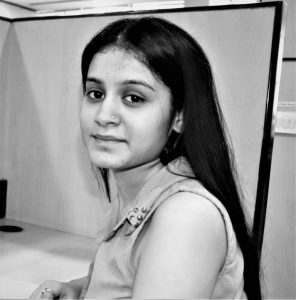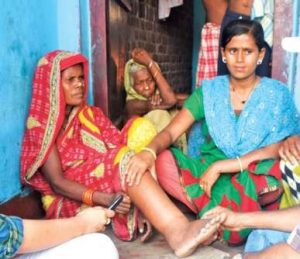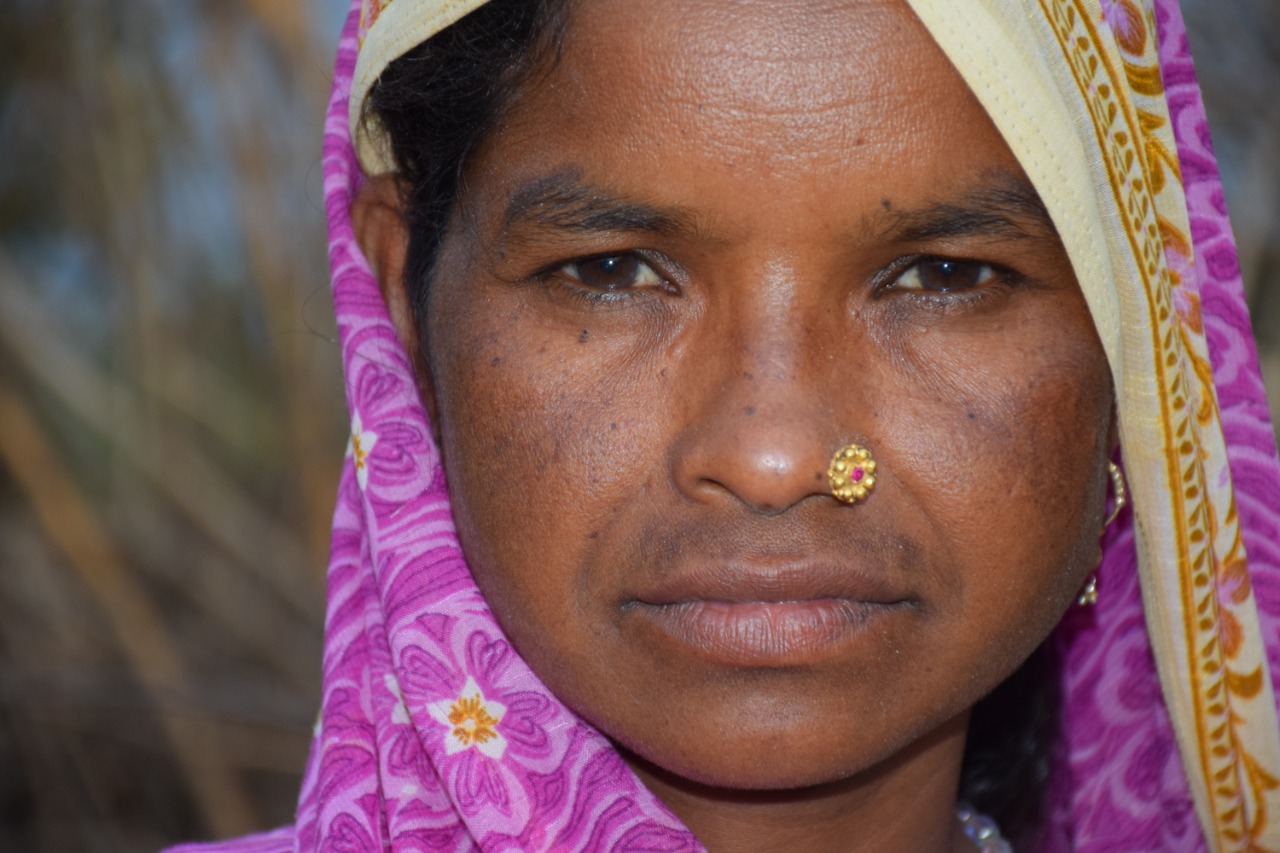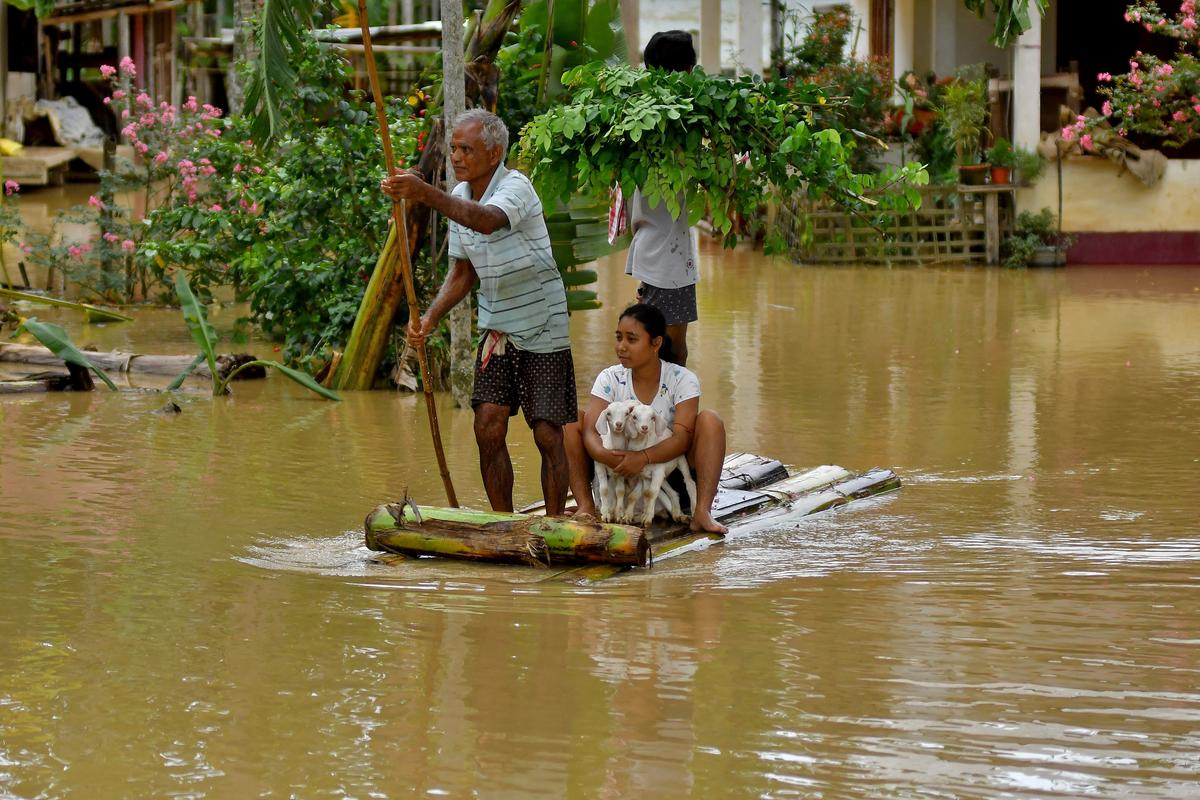CASA BLOGS

Filariasis: Battling Superstition WITH CARE
After joining CASA’s task force, Kalpana and Nilandri started volunteering in the remote Mahasai village where people had never thought of intervening in matters as “disgusting” as elephantiasis.

By Divya Bisht
Intern | CASA Communications
“They said nobody will marry me if I contract the disease” Kalpana uttered. Due to unfavorable beliefs her parents stopped her from participating for the cause but the power of knowledge which she gained from CASA’s support group and awareness programmes made her understand that the disease of lymphatic filariasis is more like a slow poison for the patients and not contagious at all.

Kalpana shows symptoms of the disease on a patient
As a result of intense stigma surrounding the disease, it was difficult for the volunteers from village areas to step forward where they were continuously encouraged to resign from such work as the locals believed that it is highly infectious to go around the victim.
“This disease is caused only due to mosquito bites and nothing else” Kalpana lashes out. Disappointed with the sad reality that besides physical pain the victims are subjected to suffer a mark of disgrace by the society, Kalpana and Nilandri decided to provide free treatment and educate people about lymphatic filariasis with CASA.
Just like Kalpana, it was also a constant fight for Nilandri, whose right leg fell prey to polio
when she was a child and had to leave her education after ninth standard.
Able to understand the pain of children with filaria dropping out off school – Nilandri aimed to turn her life around and help people suffering from lymphatic filariasis.
Despite continual threat, the determination and bravery of the two girls came across as an ignition to other women, as a result 68 women out of 90 members become part of CASA task force team.
“Whenever I see a person with lymphatic filariasis, I inquire about her health and whether they are taking medicines on time and other preventive measures to control the spread of the disease” Kalpana added. She dreamt to see every person of village to live a respectful and filariasis-immune life.
In a society where lymphatic filariasis is considered one of the most neglected disease, Kalpana and Nilandri proved to be foot soldiers of the campaign driven by CASA who struggled and succeeded to an extent in persuading sceptical locals of the necessity of taking medications.
 Previous Blog Post NATURE IS INVINCIBLE, NOT EXTINCTION
Previous Blog Post NATURE IS INVINCIBLE, NOT EXTINCTION The Rise and Rise of People-Led Organisations
The Rise and Rise of People-Led OrganisationsFeatured Post

Mental Health Awareness in India: Addressing Key Challenges
8 Nov 2024
Mental health awareness is crucial in India, where millions silently struggle with mental health disorders, including depression, anxiety, and bipolar disorder. Despite growing recognition, India faces unique challenges in effectively addressing mental health issues. The stigma associated with mental illness remains a primary barrier. In Indian society, mental health issues are often misunderstood, leading to […]

Ensuring Girls’ Safety in India: A Path Toward Empowerment
20 Aug 2024
Girls’ safety in India remains a critical issue that has garnered increasing attention over the years. Despite various reforms and efforts from both government and civil society, challenges persist. From street harassment to domestic violence, gender-based discrimination continues to limit the freedom and safety of girls. While significant progress has been made in addressing these […]

The Connection Between Monsoons and Floods in India: An In-Depth Analysis
9 Jul 2024
India, a land of diverse climates and geographical features, relies heavily on the monsoon season for its agricultural and water resources. However, with the benefits of the monsoon rains come significant challenges, particularly in the form of floods. This blog explores the intricate relationship between the monsoon season and flooding in India, providing detailed insights […]


